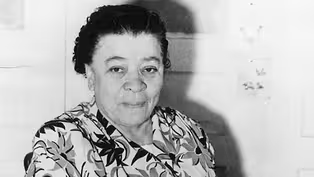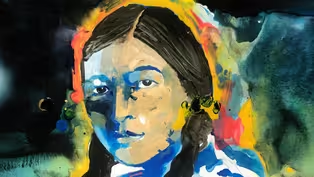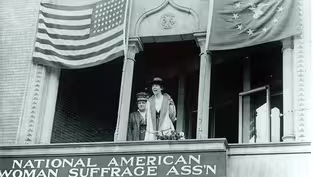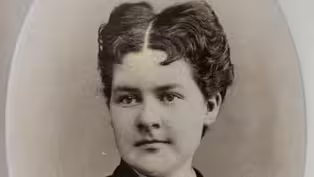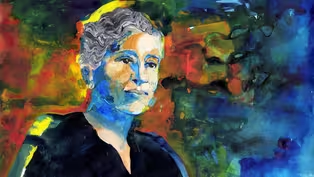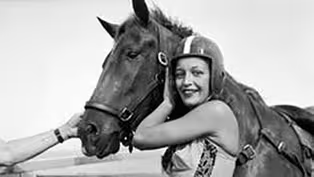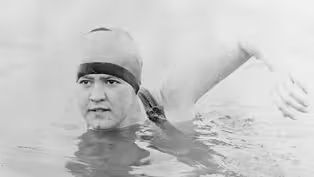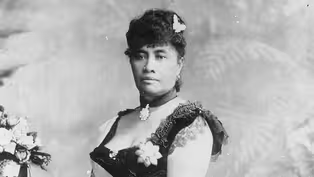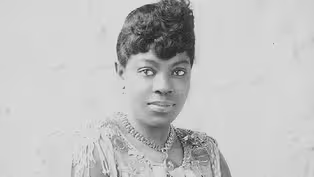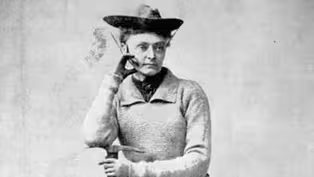
Maggie Lena Walker: Civil Rights Activist and Entrepreneur
Special | 9m 40sVideo has Closed Captions
Maggie Lena Walker was the first African-American woman bank founder and president.
A full 50 years before the Montgomery bus boycott, civil rights activist and entrepreneur Maggie Lena Walker led a city-wide boycott against segregated streetcars in Richmond, VA, and founded a newspaper, department store, and the St. Luke Penny Savings Bank, making her the first African American female bank president in the United States.
Problems playing video? | Closed Captioning Feedback
Problems playing video? | Closed Captioning Feedback
Support for American Masters is provided by the Corporation for Public Broadcasting, AARP, Rosalind P. Walter Foundation, Judith and Burton Resnick, Blanche and Hayward Cirker Charitable Lead Annuity Trust, Koo...

Maggie Lena Walker: Civil Rights Activist and Entrepreneur
Special | 9m 40sVideo has Closed Captions
A full 50 years before the Montgomery bus boycott, civil rights activist and entrepreneur Maggie Lena Walker led a city-wide boycott against segregated streetcars in Richmond, VA, and founded a newspaper, department store, and the St. Luke Penny Savings Bank, making her the first African American female bank president in the United States.
Problems playing video? | Closed Captioning Feedback
How to Watch American Masters
American Masters is available to stream on pbs.org and the free PBS App, available on iPhone, Apple TV, Android TV, Android smartphones, Amazon Fire TV, Amazon Fire Tablet, Roku, Samsung Smart TV, and Vizio.
Buy Now
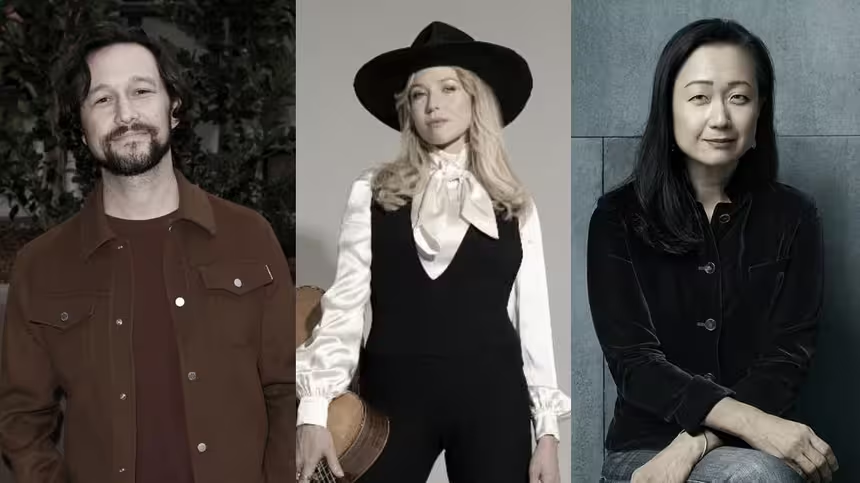
A front row seat to the creative process
How do today’s masters create their art? Each episode an artist reveals how they brought their creative work to life. Hear from artists across disciplines, like actor Joseph Gordon-Levitt, singer-songwriter Jewel, author Min Jin Lee, and more on our podcast "American Masters: Creative Spark."Providing Support for PBS.org
Learn Moreabout PBS online sponsorshipMore from This Collection
Illuminating the stories of extraordinary American heroines from the early years of feminism, American Masters — Unladylike2020 presents 26 digital short films featuring courageous, little-known and diverse female trailblazers from the turn of the 20th century.
The First Black Woman to Run for Vice President of The U.S.
Video has Closed Captions
Charlotta Bass was the first Black woman to run for Vice President of the United States. (12m 32s)
Zitkála-Šá: Trailblazing American Indian Composer and Writer
Video has Closed Captions
Zitkála-Šá co-composed and wrote the libretto for the first American Indian opera. (11m 39s)
Jeannette Rankin: The First Woman Member of U.S. Congress
Video has Closed Captions
Jeannette Rankin made history as the first woman elected to the U.S. Congress. (12m 38s)
Jovita Idar: Mexican American Activist and Journalist
Video has Closed Captions
Jovita Idar was a Latina journalist who worked for an end to segregation and racism. (11m 8s)
Martha Hughes Cannon: The First Woman State Senator
Video has Closed Captions
Martha Hughes Cannon was a historic state senator and public health pioneer. (12m 23s)
She was a Civil Rights Activist and Co-Founder of the NAACP
Video has Closed Captions
Mary Church Terrell was a suffragist, civil rights activist and co-founder of the NAACP. (11m 53s)
She was a Daredevil Performer & Advocate for the Blind
Video has Closed Captions
Sonora Webster Carver (1904-2003) was one of the most famous horse divers in the world. (10m 2s)
She was the First Woman to Swim Across the English Channel
Video has Closed Captions
Gertrude Ederle made history in 1926 as the first woman to swim across the English Channel (11m 54s)
Queen Lili‘uokalani - The First and Last Queen of Hawai‘i
Video has Closed Captions
Queen Lili‘uokalani was the first sovereign queen, and the last monarch of Hawai'i. (12m 14s)
Sissieretta Jones was a Trailblazing Black Opera Singer
Video has Closed Captions
Sissieretta Jones was the first Black woman to headline a concert at Carnegie Hall. (11m 5s)
The First American Indian Doctor
Video has Closed Captions
Susan La Flesche Picotte became the first American Indian woman doctor. (11m 37s)
Annie Smith Peck: Record-Breaking Mountaineer
Video has Closed Captions
She was a record-breaking mountaineer, educator and suffragist. (10m 40s)
Providing Support for PBS.org
Learn Moreabout PBS online sponsorshipFor her to know that banking could revitalize her community was brilliance at work.
1904, Richmond, Virginia.
40 year old Maggie Lena Walker led the African American community in a city-wide boycott against segregated streetcars.
Most people believe that the Civil Rights movement began with Rosa parks refusing to give up her seat on the bus to a white person.
That is really far from the truth.
The Civil Rights Movement began as soon as white America started enacting the Jim Crow laws.
I cry aloud in thunder tones against Jim Crow cars.. Let us walk.
Our self-respect demands that we walk.
Maggie Lena Walker was born in Richmond in 1864.
Richmond was the capital of the Confederacy during the Civil War.
So she grew up in a society that believed that she was a second class citizen.
African-Americans were just getting freed from slavery.
So she saw a lot of struggle within her community and I think that that is what really motivated her to work so hard.
The song which...white men are singing, is the song of segregation.
Separate is the cry daily.
The banking industry back then did not let in any person of color, let alone women.
You have to have some level of crazy to take on systems like that.
My name is Chloe McKenzie and I fight for wealth justice for a living.
I try to help the most disadvantaged groups recognize ways to build wealth.
I became a mortgage trader right after the 2008 financial crisis.
I thought it was incredibly troubling that somebody could take your debt, make a lot of money off of it while you were suffering financially.
At the turn of the twentieth century a lot of African American women were still in roles of servitude, as cooks and maids and laundresses rather than being in true positions of power.
As a young girl, Maggie Lena Walker and her mom took in laundry for the wealthy white people.
I was not born with a silver spoon in my mouth, but with a laundry basket practically on my head.
In 1883 Walker graduated from a black teacher training school.
She taught for three years, but then she got married.
And women could not teach if they were married.
Because it was unladylike.
They were supposed to be home with their children and taking care of their husband's needs.
Walker split her time between her family and work for the independent order of St. Luke, a membership organization dedicated to the social and financial empowerment of African Americans.
In 1899, St.Luke was on the verge of bankruptcy, when Walker was elected Grand Secretary.
Her vision to save the organization was to create businesses that hired and served the black community.
She believed that you should support black businesses.
Instead of putting your money where people didn't value you, why not put your money with people who shared your struggle?
In 1903 Walker founded the St. Luke Penny Savings Bank and became the country's first African American female bank president.
Let us put our monies together...and have a bank that will take the nickels and turn them into dollars.
She grew that organization from nothing to over a million dollars.
The fact that Maggie started a bank in the early 20th century is quite mind blowing because married women couldn't even own their own bank accounts until the 70s.
For a woman of color today, the median net worth, how much wealth she has, is $200.
The median net worth of a white man is upwards of $20,000.
So I founded BlackFem five years ago so that girls of color and underserved communities had the skills, habits, and resources to build and sustain wealth.
BlackFem empowers schools, to be the mechanism through which we close the wealth gap.
Walker also founded a newspaper and served as its managing editor.
The St. Luke Herald sounded the alarm for injustices.
The did piece after piece after piece on the lynchings that were at their apex during that time.
The persecutions of our people must be told.
Somebody must speak.
Somebody must cry aloud.
In 1905, Walker opened a department store on the main shopping street of Richmond.
The St. Luke Emporium featured only African American mannequins and it really was an experience for people to go out and buy their Sunday best.
It was important to Maggie Walker to hire black women.
She felt that of all people, they had gotten the short end of the stick.
And it was her life's work to uplift women in any way she could.
To avoid the traps and snares of life, women must band themselves together, organize, and make work and business for themselves.
Walker put that ideal into practice and in 1904 bought her family a two story house.
It was in this home, in 1915, that the biggest tragedy of Walker's life occurred.
They had some break-ins at the home, so they had armed themselves and unfortunately the son mistook his father for an intruder and accidentally shot and killed him.
I passed through the most trying ordeal of my life which robbed me of all energy.
And so I have leaned heavily on God's everlasting arm.
Walker's faith pulled her through.
Re-energized, she worked for the NAACP and The National Association of Colored Women, and also spearheaded the local struggle for women's suffrage.
The elevation of woman to her proper and rightful place has been the slowest work of the centuries.
Let woman become independent.
A lot of white women at the time believed that it would hold back their own progress to reach out a hand and include African American women.
So it was really instrumental that Maggie Walker used her platform to encourage African American women to get out and vote.
Around this time, Walker developed diabetes, which confined her to a wheelchair in the last years of her life.
She put wheels on her desk chair, she installed an elevator in her home, so she really wasn't letting anything slow down the work that she was doing.
When the stock market crashed in 1929, Walker kept her bank alive by merging with another black-owned bank.
The merger resulted in the Consolidated Bank and Trust Company, which survived until 2005.
And it was considered the longest operating black bank in America.
Walker died in 1934.
Her home is now a national historic site.
Her work and mission are rooted in this activism that changed her community.
It changed the way we think about banking.
If Maggie could do it at that time, there are really no excuses for us.
Let us awake, let us arise.
We can do anything, as soon as we learn the lesson of unity.
Support for PBS provided by:
Support for American Masters is provided by the Corporation for Public Broadcasting, AARP, Rosalind P. Walter Foundation, Judith and Burton Resnick, Blanche and Hayward Cirker Charitable Lead Annuity Trust, Koo...

